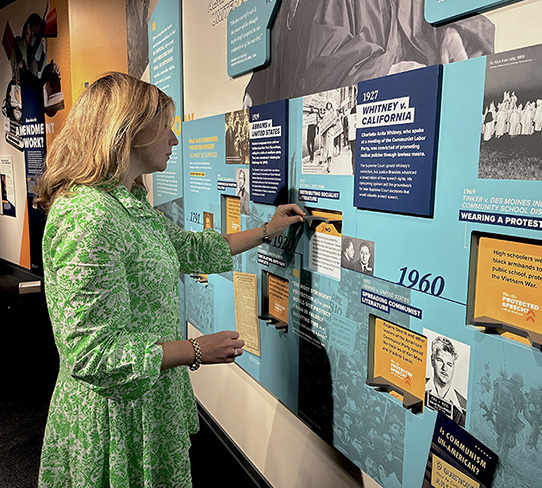
Discover how the First Amendment guarantees five core freedoms—religious liberty, free speech, a free press, the freedom of assembly, and the right to petition—and how it impacts us today.

Protecting some of our most cherished freedoms—religious liberty, free speech, a free press, the freedom of assembly, and the right to petition—the First Amendment is a pillar of democracy and the American way.
The 1,500-square-foot exhibit features more than 20 artifacts highlighting all five freedoms. Combined, these items capture how these rights have been defended over time, and the lengths some have gone to in order to ensure their protection. These pieces include a draft opinion with handwritten edits from U.S. Supreme Court Justice Louis Brandeis; an anti-Vietnam War armband worn by the Tinker family and associated with the landmark student speech case, Tinker v. Des Moines; The New York Times’ 1971 publication of the classified “Pentagon Papers”; and a pennant from the 1963 March on Washington for Jobs and Freedom. Visitors are invited to challenge their knowledge of the First Amendment through interactive elements and games.
Check out highlights from the gallery. Please note, artifacts are rotated and subject to change.
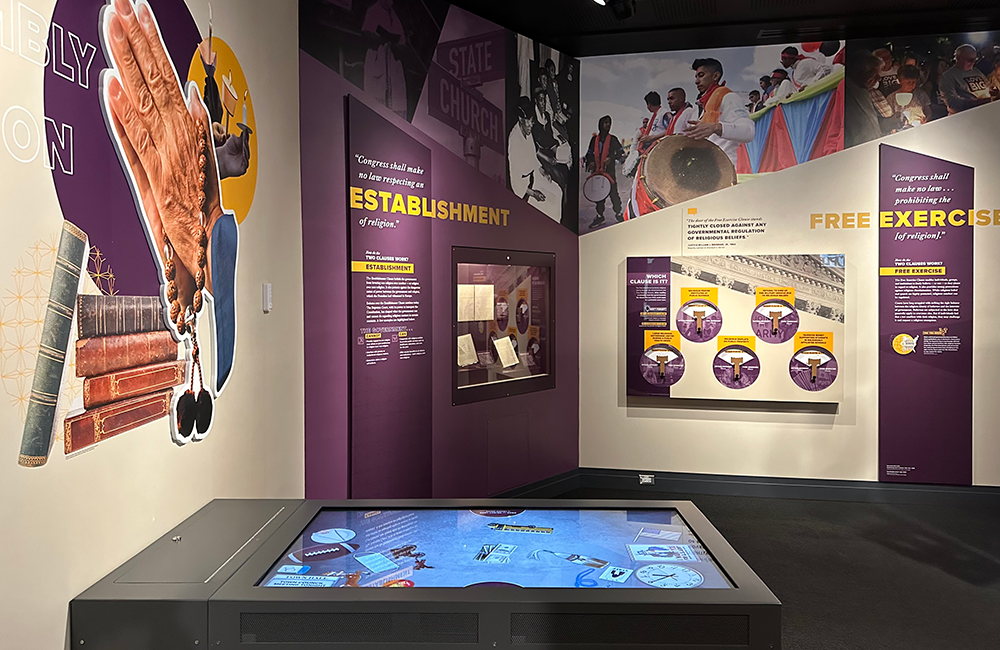
Freedom of Religion Photo courtesy of the National Constitution Center by Jason E. Miczek
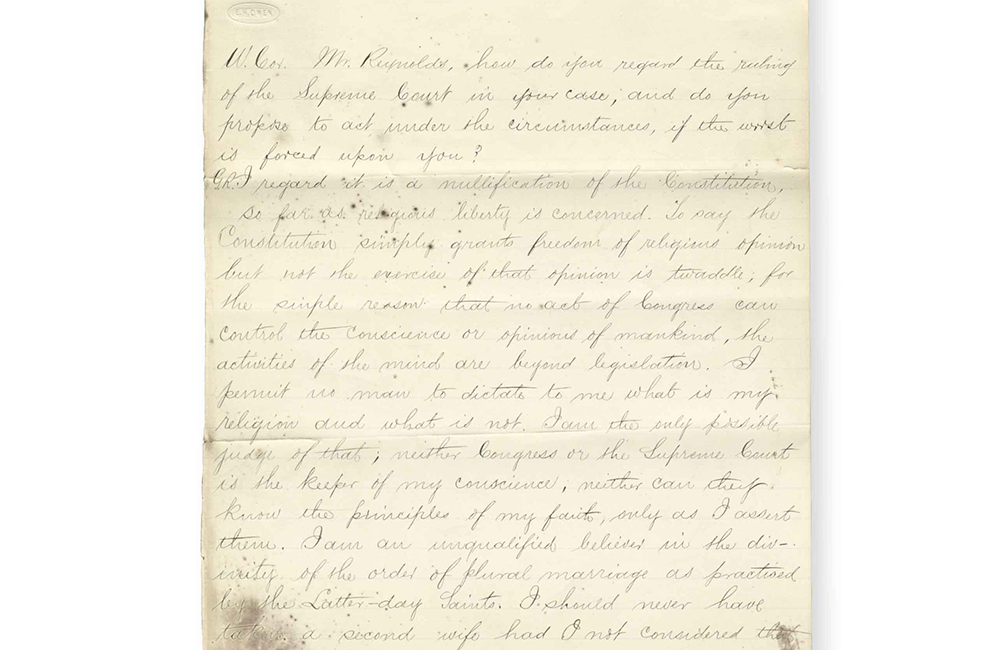
Interview with plaintiff in Reynolds v. United States, the first Free Exercise Clause case, ca. 1879 George Reynolds papers; V MSS 10; L. Tom Perry Special Collections, Harold B. Lee Library, Brigham Young University, Provo, Utah
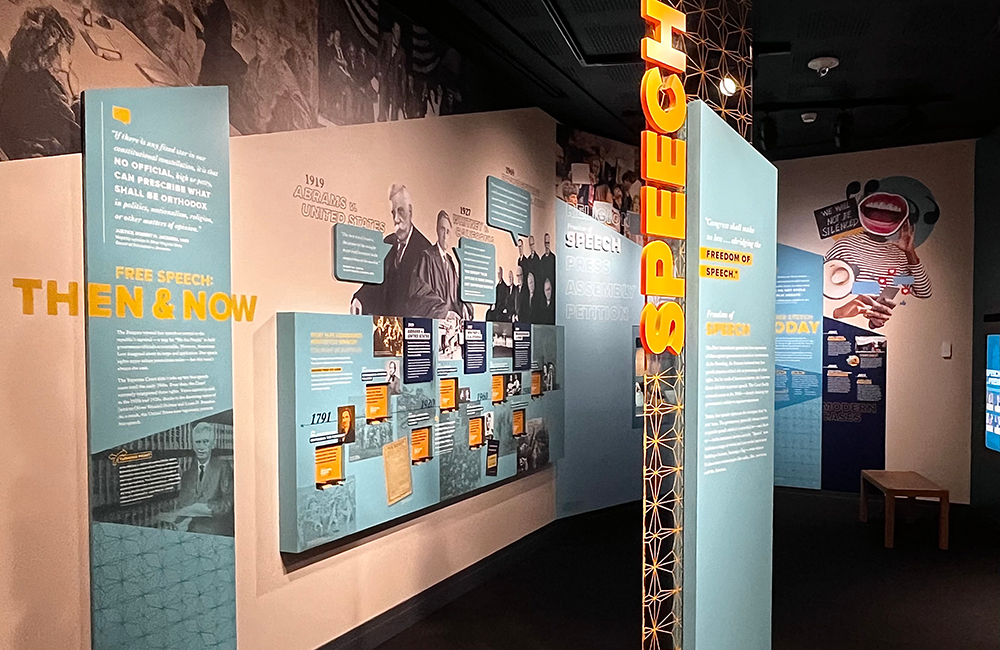
Freedom of Speech Photo courtesy of the National Constitution Center by Jason E. Miczek
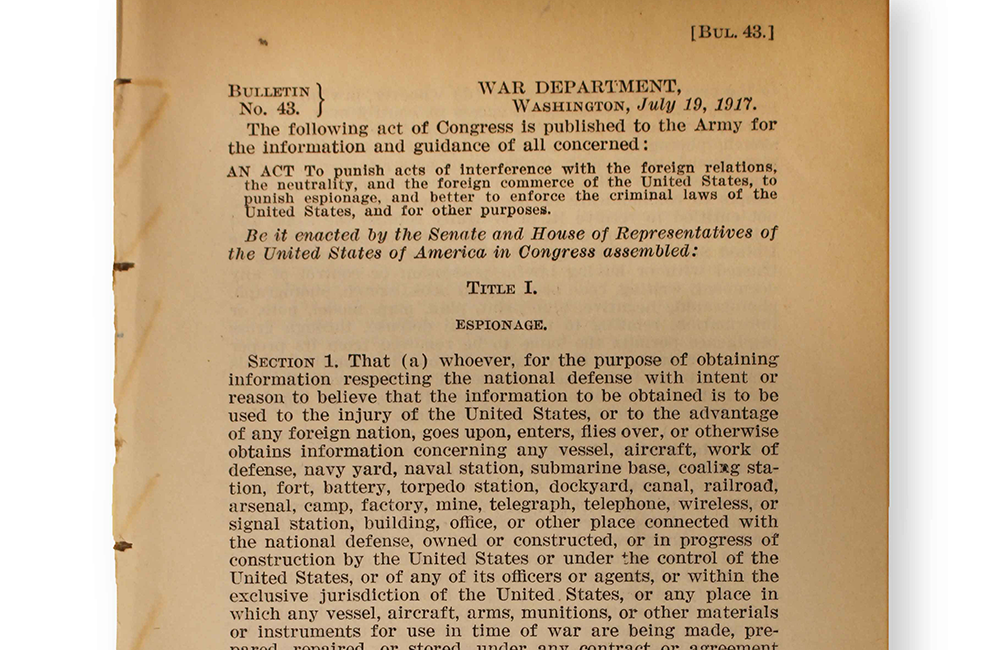
Espionage Act, 1917 Frank Amari, Jr.
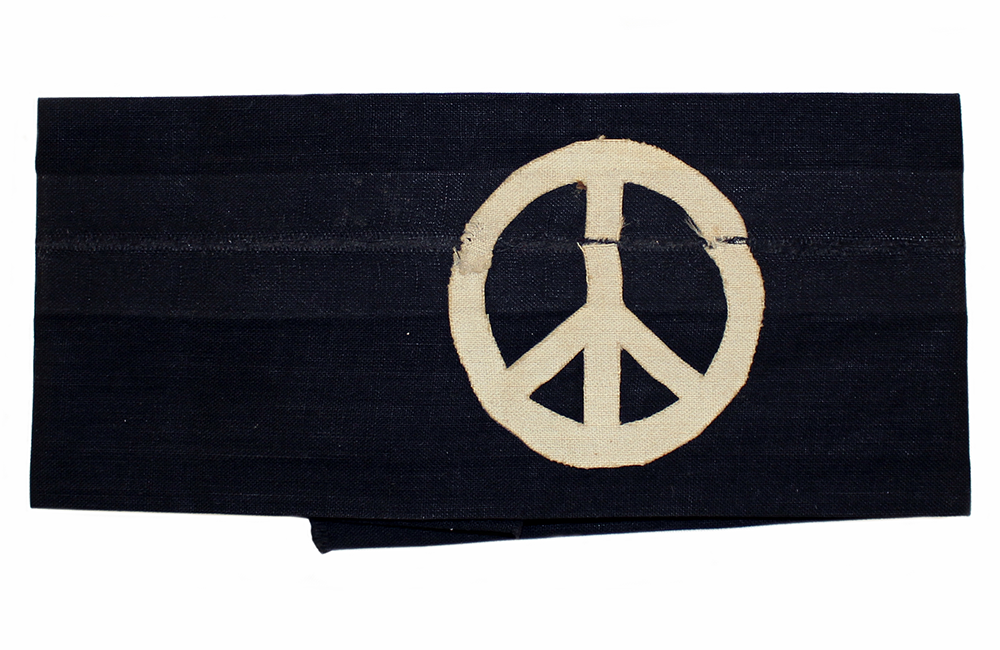
Anti-Vietnam War armband worn by the Tinker family, whose landmark case, Tinker v. Des Moines (1969), defined free speech rights for students. Mary Beth Tinker Family
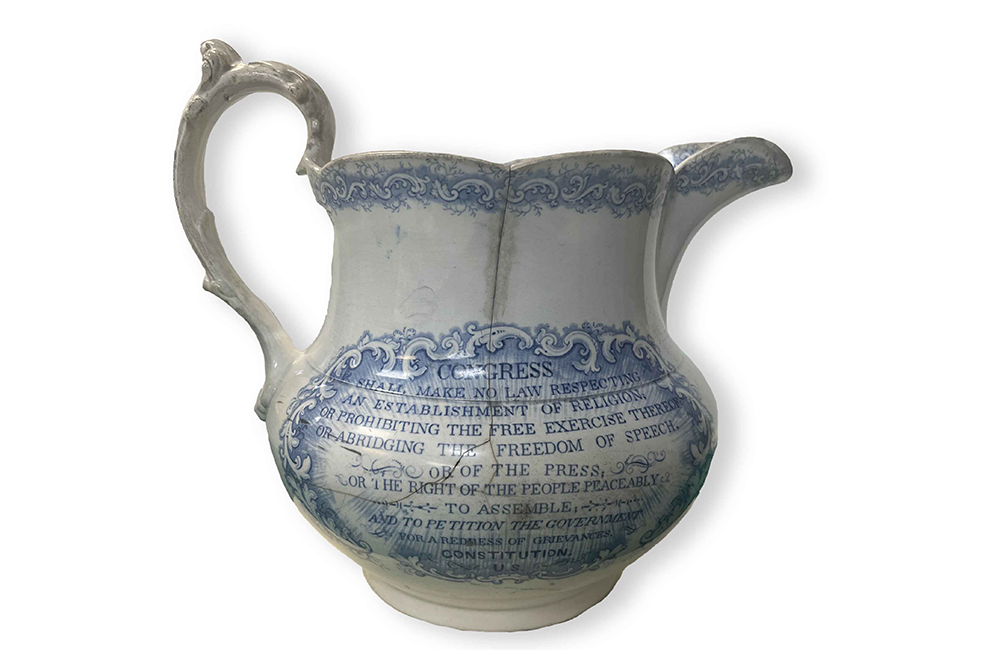
Pitcher inscribed with the words of the First Amendment, memorializing Elijah Lovejoy, an anti-slavery newspaper editor, ca. 1840 Museum of the American Revolution, Philadelphia
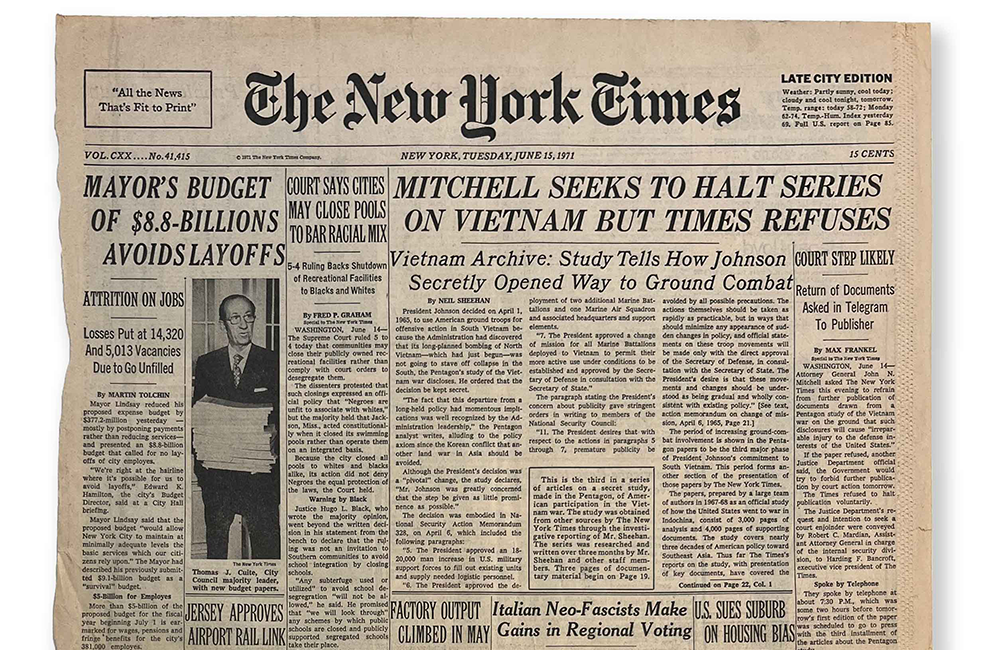
The top-secret “Pentagon Papers” published in the New York Times, 1971 Loan, Freedom Forum’s Newseum Collection
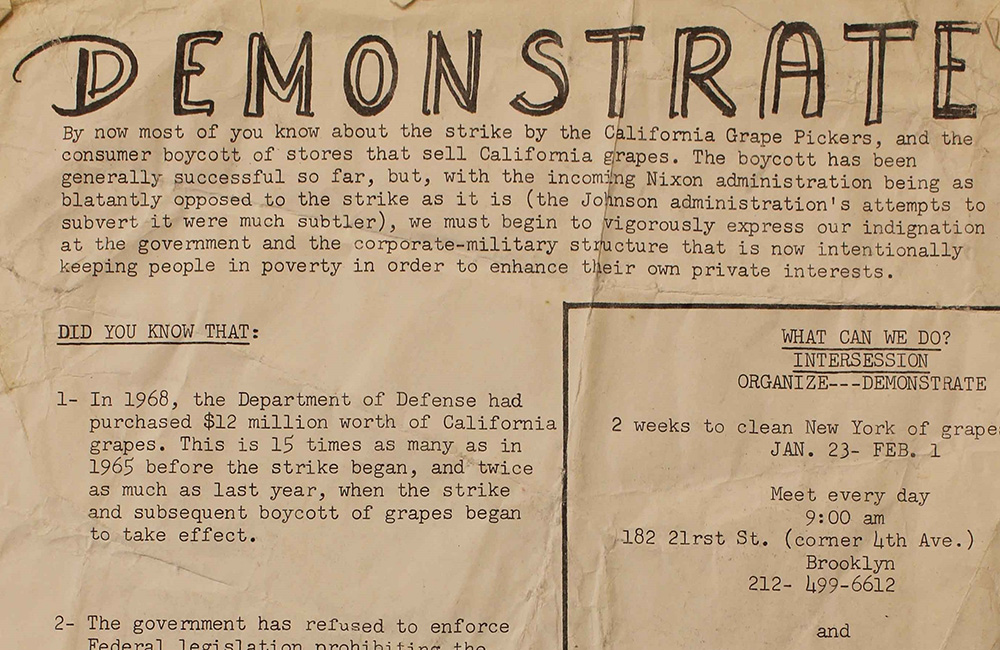
Demonstration flier in support of the Delano Grape Strike, ca. 1969 National Constitution Center Collection
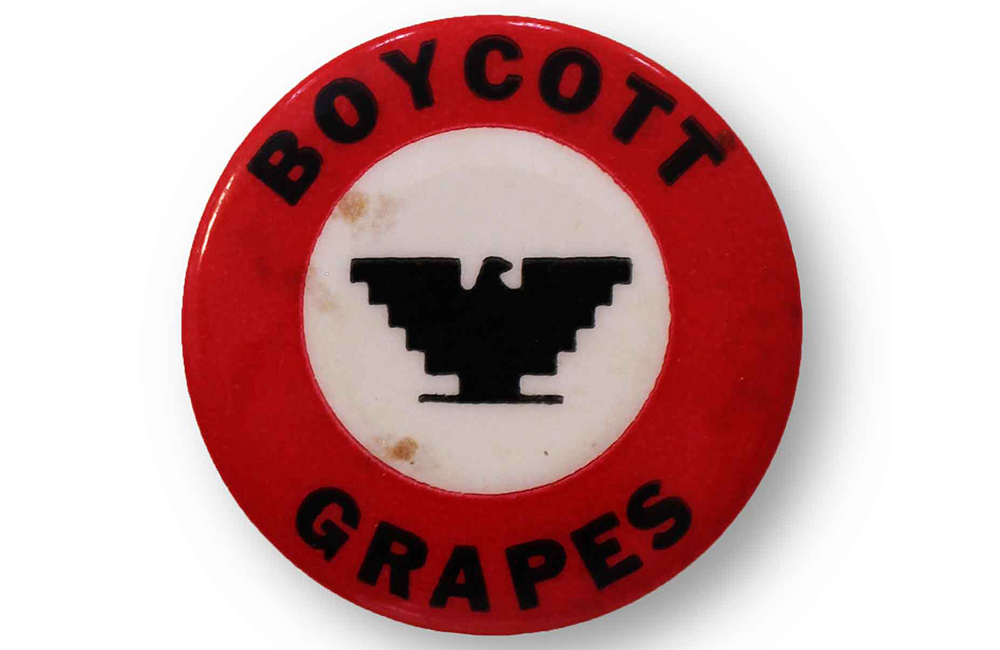
Button supporting the Delano Grape Strike and Boycott, 1966-1970 National Constitution Center Collection
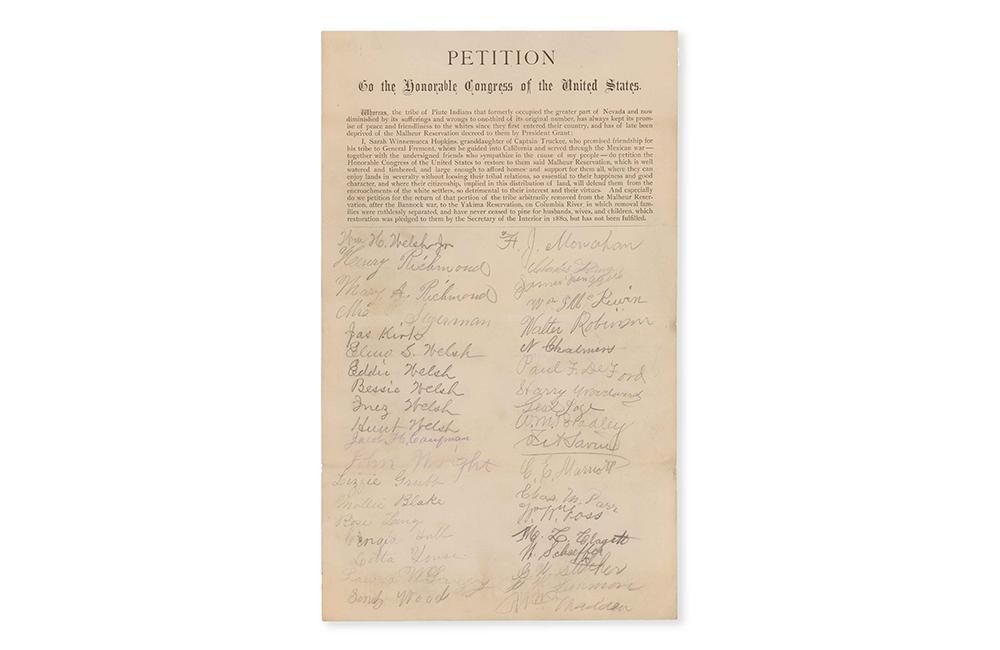
Petition on behalf of the Paiute tribe, 1884 Courtesy, National Archives & Records Administration, Washington, D.C.